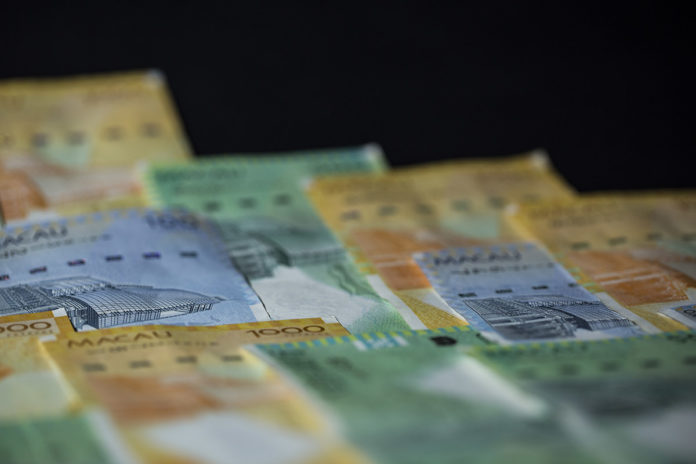Current and likely profitable opportunities for investments in business in the Macau SAR range from logistics and tourism to the digital industry, according to experts who spoke to Business Daily.
For the Executive Director of the British Business Association of Macao (BBAM), Jill Rigg, the city has a “bright future” within the Greater Bay Area, an area destined to become the “powerhouse of the world.”
A focus on enhancing the MSAR’s place in the Greater Bay Area is a direction also framing policies fostered by the Macao Trade and Investment Promotion Institute (IPIM), with the agency claiming to Business Daily that ‘with the deepening of regional co-operation […] new business opportunities will continue to abound in Macau.’
In Ms. Rigg’s opinion, important concerns need to currently be addressed for that to happen, including the need for “vastly improved infrastructure” and conditions to import talent to the city.
“A more open approach to attracting topline talent should be seriously undertaken and reviewed by the MSAR. Great talent and growth will give Macau citizens better living conditions and way of life,” details Rigg.
Integration
The city’s integration into the Pearl River Delta (PRD) and fostering training are points also raised by José Alves, the dean of the Faculty of Business and Leadership at the University of Saint-Joseph. Mr. Alves believes integration would open up opportunities for the development of logistics and transportation businesses.
“[It] will not only improve access to Macau, but also offer its companies the opportunity to enter international supply chains, namely with Portuguese-speaking countries,” he told Business Daily.
This would be aided by infrastructure projects.
“The city needs to have public infrastructures that are comparable in quality and efficiency with nearby cities in the PRD, or else investors may perceive other cities as more attractive,” he highlighted.
Mr. Alves also pointed out that training is strongly connected to competitiveness.
“The education sector needs to accelerate improvements at a rate that is faster than nearby cities, so that we can reduce knowledge gaps and remain competitive in the long term,” he suggested.
Broadening horizons
IPIM claims it is applying efforts in ‘cultivating’ what it calls ‘emerging industries,’ which to a large degree converge with the business opportunities and niches mentioned by respondents to Business Daily.
In reply to enquiries, the institute outlined that the ‘government pays close attention’ to the convention and exhibition industry (MICE), the Traditional Chinese Medicine (TCM) industry, and the cultural and creative industries, in addition to the ‘specialised finance’ and ‘the construction of infrastructure to support smart-city innovation and expediting the development of e-Government initiatives.’
Slightly off the government’s radar but equally promising areas for investment, according to Mr. Alves, are healthcare and digital technologies.
The first is due to “the increasing purchasing power and ageing population” in the city, while the second would “increase productivity, especially of SMEs [small and medium enterprises], and facilitate communication, interactions, and transactions with remote markets and partners,” he said.
Free circulation of capital, as well as visitors, are also appealing conditions for local commercial development, according to the Vice-President of the Youth Entrepreneurs Association, Jorge Valente, who claims “all businesses have a potential clientele of over 30 million visitors a year.”
According to Mr. Valente, who was a candidate in the latest legislative elections, another factor of attraction is Macau’s low tax environment, at least in principle, because that “entails the company survived to make profit in the first place.”
Taxation is also one of IPIM’s main highlights in its responses.
‘Macau provides a business-friendly environment with no foreign exchange control, a low and simple tax regime and a highly open market enabling free flows of people, capital and goods,’ the institution’s spokesperson noted.
Low taxes: enticing, but enough?
If taxes are low, the same cannot be said about other costs involved in the setting up and maintenance of business ventures in Macau, point out respondents.
Mr. Valente told Business Daily that the main difficulty for young entrepreneurs “is the high cost associated with doing business in general.”
Valente highlighted that “all fixed and variable costs are high,” including the cost of labour, even when the workforce is employable.
“The lack of labour is another big problem,” he pointed out, noting however that it is not the only one.
“The lack of transparency in licensing of any kind and the length [of time] it takes kills most businesses,” he outlined.
Law constraints are also perceived as a problem by Mr. Alves, who argued that enabling the city’s regulatory environment to “become more grounded on scientific, technological and sustainability standards,” would help trigger a positive effect similar to the outcome of investing in digital technologies: to “increase productivity.”
This then “stimulates increased efficiency, transparency, and citizenship,’ advocated Valente.
























